Before the rise of Bobrisky, James Brown, and the likes, cross dressing started from men like Area Scatter in the 1970s, to Calypso King in the 1980s, to Denrele Edun in the 2010s. They all laid the footpath of all cross-dressers in Nigeria today.
Although cross dressing is still not generally accepted by society, it is gradually becoming well-known in Nigeria, especially in the comedy and fashion industry.
Cross-dressing is quite a buzz and lucrative business in Nigeria. Because of this, cross-dressing is no longer a big deal in Nigeria.
Table of Contents
What is Cross Dressing?
Cross-dressing is the act or practice of wearing clothes of the opposite gender.
This is when an individual dress in clothing not associated with their gender. For example, a man wearing a female dress, high heels, braiding hair, fixing and painting nails, and the other things women do. It could also be a woman wearing male clothing.
Transvestism is also another word for Cross dressing. Cross-dressing is not the same as being transgender or homosexual, as many Nigerians think it is. They are different acts
Although Cross dressing is mainly known and associated with men in Nigeria, cross-dressing is not specific to one gender. We also have some women who dress and act like men. The advantage women cross-dressers have is that theirs has been normalized, and it is termed as “Tomboy” or “Girl boy.”
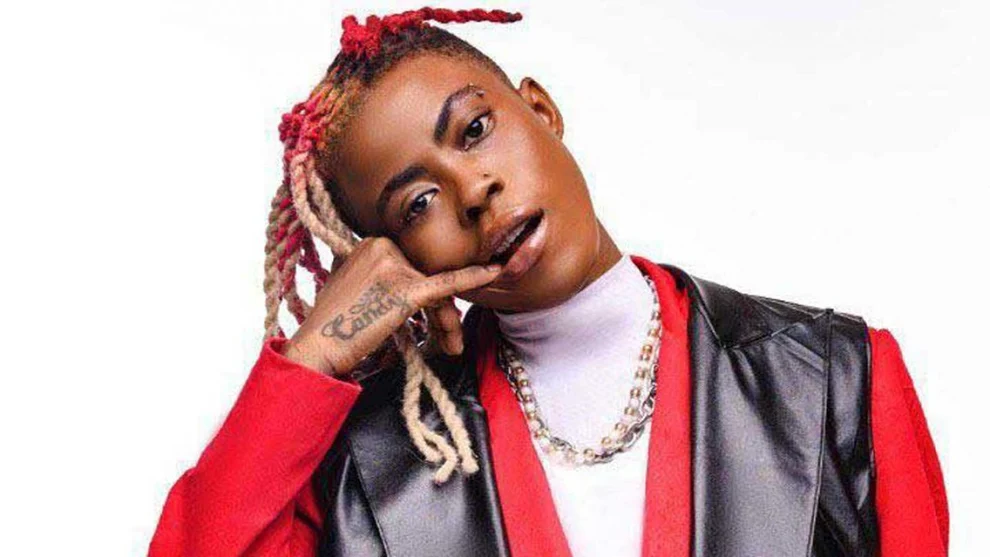
Popular Nigerian music act, Candy Bleakz, who dresses like a boy
Cross-dressing in Nigeria was not openly accepted in the early days and was frowned upon by part of the society. But, it is now viewed as a form of entertainment, comedy, and fashion.
Reasons People Cross Dress
Cross Dressing has been used for different purposes
- Some cross-dress for the comfort of their fashion sense, style preference, and self-expression.
- For entertainment purposes, e.g., comedy, acting.
- To defy the rules set by society, to defy the norms.
- As a form of disguise, to pass as part of the opposite gender.
- For religious and cultural reasons.
- And some cross-dress just because they like it.
Cross Dressing in Nigeria: Self-Expression or Comedy
Cross-dressing in Nigeria stems from expressing oneself, exploring the opposite sex’s behaviour, or psychological reasons. Some might even say that the cross-dressing culture stems from the modern-day drug “CLOUT.” A means to gain attention, especially with the craze influence of social media.
We know that Nigerians love catching cruise and turning everything into a joke. So when videos of cross dressers Bobrisky, James Brown, we laugh so hard and engage their content. It is hard not to think that cross-dressing is no longer relevant.
For example, James Brown, the famous cross-dresser, took to Instagram to explain the reasons for his action. He said the young cross-dresser posted that while he is still a man and is proud of his masculinity, the downside or situation of the country made him go into cross dress. Just a means of livelihood. There are a lot people who also cross-dress for the same reason.
Can we still say the likes of James Brown, Twyse Ereme, Josh2Funny are expressing themselves through cross-dressing?
In the Northern part of Nigeria, there are men called “Yan Daudu,” which means men who act like women
Truthfully we have people who cross-dress as a form of self-expression and for other genuine reasons, but they are very few as a large part has turned it into comedy.
In my opinion, cross dressing in Nigeria is pure comedy. A means to generate income and to be famous on the internet through entertainment, especially with the advantages social media offers.
Read Also: How to Rock Palazzo Trousers in Nigeria
People, in general, have always been fascinated with strange things, so it is not surprising that something like this will blow up.
In the past, it was a form of self-expression and personality, but now it’s been misused. Anyone cross-dresses for the fun of it, to gain attention. It is tough to distinguish between the male and female gender, “we no sabi who be who,” as almost everybody engages in the act.
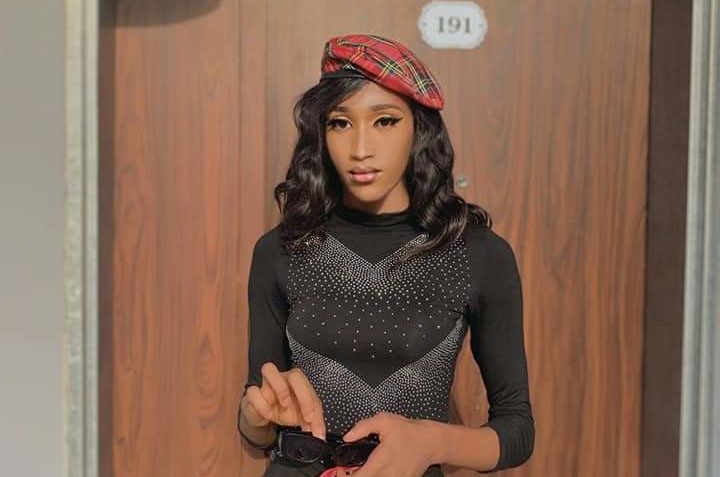
Do you know this a man? This is Jefferson Ndoma
Moreover, some Nigerians are looking for any means to generate money, thus cross-dressing being a vast business for them. Some even go to the extent of scamming and deceiving innocent people.
In the 1970s, Uzoma Odimara also known as Area Scatter, became the first cross-dresser in Nigeria. It was a form of self-expression for him. Area Scatter was a civil servant and musician who loved to dress like a woman, braid his hair, make-up, painting nails, and so on.
He was seen as a member of the queer community but it’s different in the 21st century. Men cross dress to make funny content.
Read Also: Can LGBTQ be Publicly Embraced in Nigeria?
There are a lot of Nigerian skit makers who use cross dressing as a form of comedy. We have; Maryam Apaokagi, also known as Taaooma, who cross-dresses as a male character named Kunle in her skits. She wears male clothing and speaks like a man to get into the character.

Taaooma cross dresses to act the character, Kunle, in her skit
Another comedian who cross dresses is Josh2funny. He is a Nigerian comedian who gained popularity with his character Mama Felicia, known for singing Igbo versions of popular Nigerian songs, which are hilarious. Twyse Ereme is another online comedian who cross dresses when playing female characters, Sade, Mummy Tobi, Grandma, in his skits. He tries to use female voices for each character, and he has made a lot of money from it.
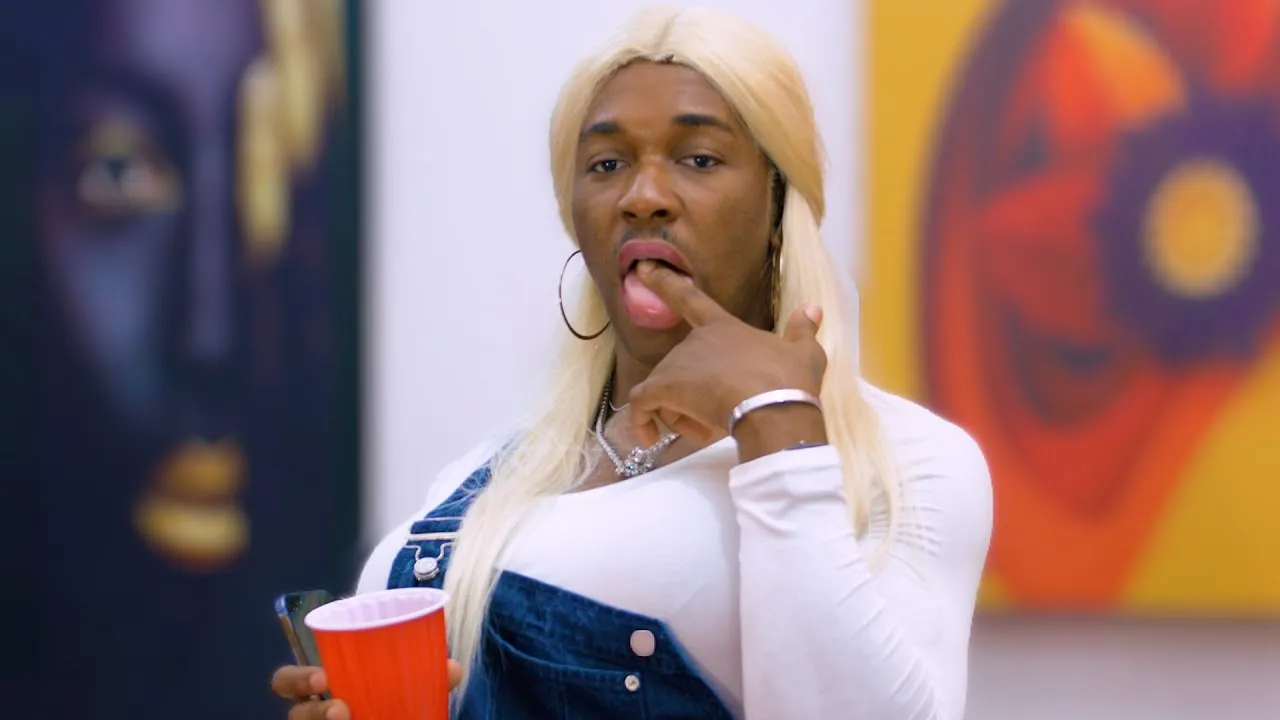
Twyse Ereme cross dresses to act female characters in his skit
Asides these skit makers, there are cross dressers who do it to make money from brands. They also put up funny content to entertain their fans. They dress exactly like women unlike skit makers who dress shabbily, they wear female clothes, fix their nails to look exactly like women.
Some of them are;
- Okuneye Idris (Bobrisky)
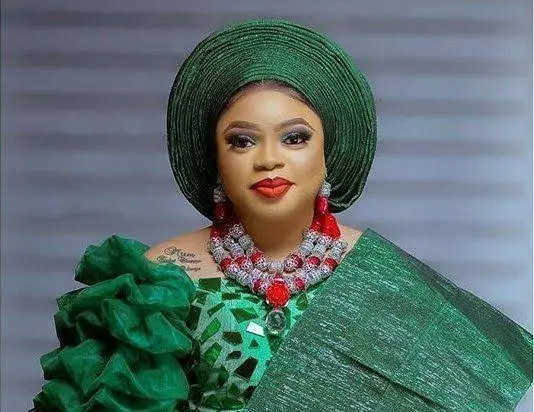
Bobrisky
You cannot talk about cross dressing in Nigeria without mentioning Bobrisky. Bobrisky, aka Mummy of Lagos, became famous through social media. Bobrisky started small with little things like make-up, wearing dresses, fixing nails and other things.
Funny enough, there was a time Bobrisky attended her father’s birthday party dressed as a man. Then, she did surgery to change her identity from a male to a female and has been entertaining fans with his videos, advice and other funny content.
Read Also: Is Social Media A Menace or Blessing in the 21st Century?
- James Chukwueze Obiolor (James Brown)
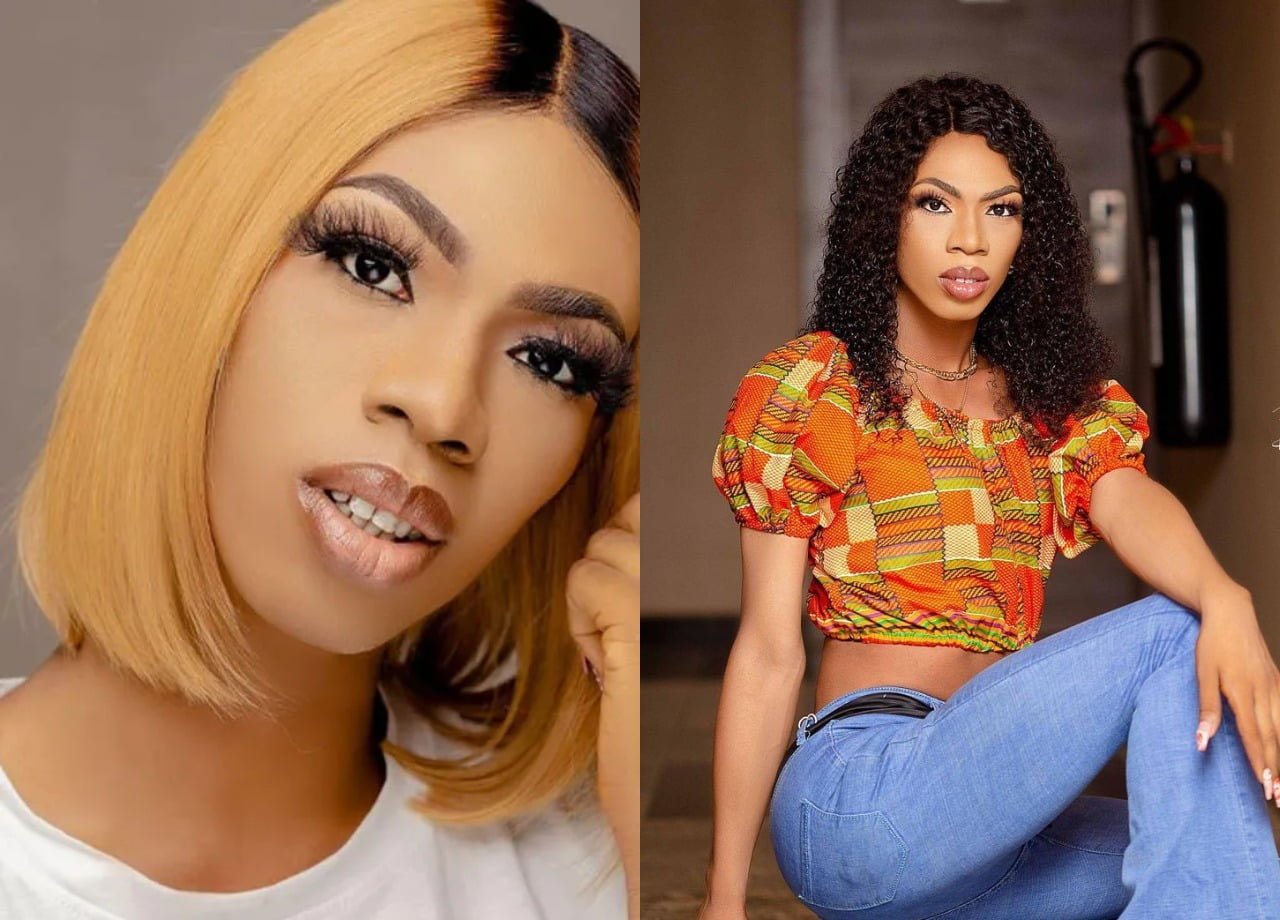
James Brown, became a cross dresser after a viral video in 2018, “They did not caught me,” where he has arrested alongside a couple of people from their gay gathering.
James Brown saw an opportunity and took advantage of it, he started sharing videos on social media of himself dancing with heels, wearing female dresses. He continues to entertain people with his hilarious dance, and behaviour, he also gave himself the title “Princess of Africa.”
These cross dressers deliver their female characters in the best way. Their behaviour, manner of speaking and dressing will almost make you forget they are males. Skit making has proved to be a lucrative job, this is why comedians employ cross dressing when making their videos to deliver an engaging content.
Cross-dressing in Nigeria is becoming rampant. Every young person is following the trend, especially amongst the male gender going online, wearing dresses, and make-up, just for the fun of it, the views and likes. They know they can make money by entertaining the internet, it’s a win-win situation. The viewers get to laugh and the content makers gets paid.
Conclusion
The government seeks to ban cross-dressing in Nigeria. Umar Muda, a member of the House of Representatives, proposed a new bill on the 5th April, 2022, that a person engaging in cross-dressing is guilty of an offense and liable to imprisonment of 6 months or a fine of 500,000.
Though it hasn’t been passed as law, Bobrisky and many others will be at risk of these punishments if the bill becomes official. There isn’t an epidemic of cross dressing in Nigeria, so this makes the bill dead on arrival.
As a country rooted in culture and belief, it might be hard to accept cross dressing. But, if people can come to understand that cross dressing is mainly for comedy, then we can have a headway.
Join our WhatsApp community to be a part of our Insightful conversations. You can also get updates on more insightful posts from us by subscribing to our newsletter.
About the Author
Fiyinfoluwa Adeite is a multi-talented individual who is eager to learn, develop and find thriving communities to contribute meaningfully to. She’s currently an undergraduate, but very interested in acquiring relevant skills to give me an edge once I’m out of the University.
When I’m not making a cuisine, I’m writing. I’m at the early stages of my writing career, and I would relish any opportunity that can help me hone the skill.
About Author
- Op-Ed are articles published by guest authors. We no longer accept guest posts. However, we are still open to adding long-term content contributors to our team of insightful writers. To write for us, please check out inisght.ng/guest-post.
Latest entries
 Business InsightsMarch 27, 2024Effective Strategies for Managing Cash Flow in a Nigerian Business
Business InsightsMarch 27, 2024Effective Strategies for Managing Cash Flow in a Nigerian Business

 Business InsightsFebruary 12, 2024Privacy Policy for Business Websites: All You Need to Know
Business InsightsFebruary 12, 2024Privacy Policy for Business Websites: All You Need to Know

